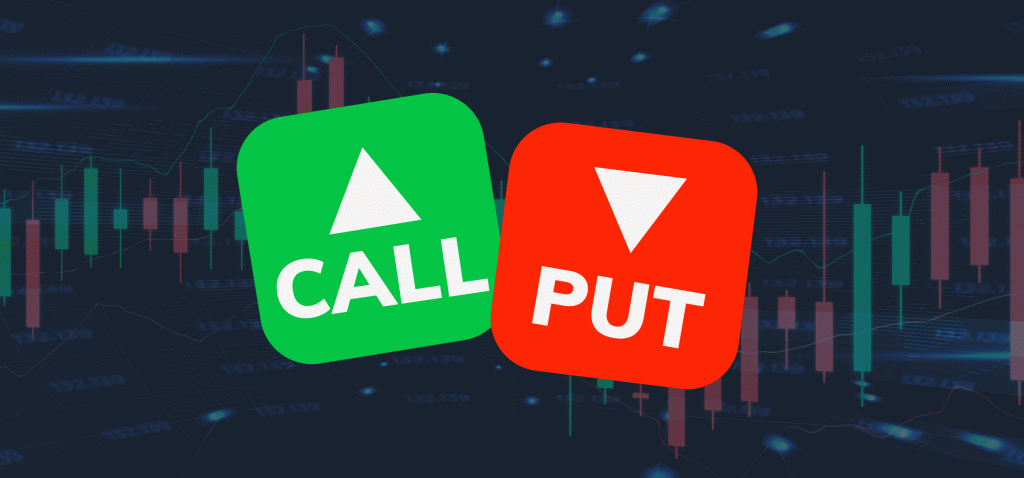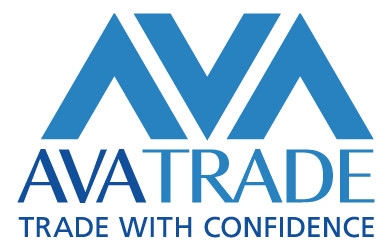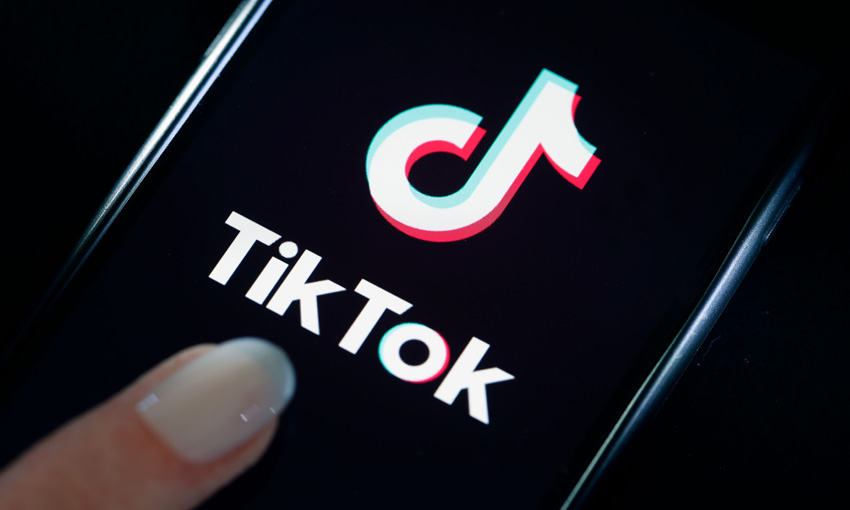Disclosure: Privacy Australia is community-supported. We may earn a commission when you buy a VPN through one of our links. Learn more.
What Are Options & How Do You Trade Them?

If a book reaches bestseller status, an author might find themselves hit up by a production house seeking to “option” it for a movie script. There’s a certain time window to buy full rights — until that point, the studio has “first dibs” because it owns the option.
Financial options work in a similar way… Trading options means contracts giving you the right to purchase something at a later date. For instance, stocks.
Each contract gives you the right to buy at a fixed price, in advance. The contract expires after that deadline.
This gives you a simple illustration of how options work. That said, let’s explore what options are and how to trade them on the UK market in more detail.
Table of Contents:
At a Glance, pros and cons of options trading 🎲
Options have a certain appeal to them, even a certain glitz. But are they right for you? We made this section as a sharp overview of the benefits and drawbacks of options trading, you can view it at a glance.
Pros
✅ Minimises investment risk. Your loss is limited when you use options. Instead of actually gambling on the full asset, you are placing a stake in it.
✅ Can apply “leverage”. Options allow you to use leverage, in one way of thinking. You can have the same returns as purchasing a., But you only put in a professional upfront. Better yet, you’re not taking a loan — you’re using your money.
✅ A sophisticated instrument. Many kinds of traders use options. Because they are time-sensitive, and they get very complicated, there are many things you can do to play around with the volatility of stocks.
Cons
❌ Time. Time is your greatest enemy with options. If you were to purchase stocks, you could simply wait until your investment was proven savvy (or not). But this is a sharper reality with options. There is a fixed expiration date.
❌ It’s a double-edged sword. However, in one way of thinking, options allow you to almost use leverage. If your gamble is wrong, you will still lose your stake. Make enough of these mistakes, and it leads to a large loss as with any trading strategy.
❌ Fees can be significant. There are complex pricing structures associated with trading options according to your particular strategy. For example, in some rare instances, your capital gains are taxed at the higher end of the spectrum. In addition, commissions applied to options on a weekly basis frequently are higher than compared with stocks.
What are Options & How Do You Trade Them? – Buying Guide 🎲
This section could be useful if you are interested in learning more about how options trading and top options trading platforms function.
Explanation and history of options contracts

Did you know options trading has been around since the fourth century BC?.
It’s true. It might be a shock to learn options trading has been around far longer than the stock marketplace and the stock exchange.
Before digital banks and investments in the Internet, options were used in ancient history by the Greeks and the Samurai.
In some shape or form, options trading was used even as far back as the fourth century BC. One of the first records of this was seen in literature documented by Aristotle. Aristotle, a Greek philosopher who What about it in a book called “politics” — where he talked about how one of his colleagues, another philosopher called Thales of Miletus, was able to profit extraordinarily from one olive harvest.
Thales was a very knowledgeable mathematician, astronomer and philosopher. He used his skill sets to develop the fundamentals of options contracts. As a mathematician and astronomer, he was trained in being able to forecast when harvests Would be great in the area he lived.
He forecast this by interpreting the movements of the stars in the skies. So he was adept at guessing when olive presses would see extraordinary demand, thereby allowing him to make great profits by early preparation.
However, the philosopher did not have the cash at his disposal to buy olive presses are white. So he decided to pay people who owned olive presses, so that he would have exclusive permission to use them when the time for harvest arrived.
The owners were able to be reimbursed and he was able to profit. This was a mutual win. He paid these owners ahead of time. And it was only locked in for that year — the owners were able to rent it out to somebody else in the following year.
This fundamental still exists — modern-day options traders use these contracts in some of the following ways (this is not an exhaustive list):
- ✔️ Making contracts between two parties. One party gives permission to buy or sell a security (for instance, the olive press was the security that was secured in the example above, by being rented). This permission is set to be fulfilled by a certain date (or not) at a fixed price — ahead of time.
- ✔️ This means options contracts can be more cost-effective than buying the full security outright. In the illustration we gave above, the philosopher did not have the cash at hand to buy the olive presses. Instead, he bought permission to rent them for a specific window of time — Furthermore, it was a rolling annual agreement that he could nullify whatever he wanted to. All that was needed was one upfront payment.
- ✔️ There are definitely risks with options trading. The philosopher was sure that his forecast was accurate. But the less guaranteed speculation, the greater the risk. Just as with any kind of trading, there is a chance that all or a significant amount of cash could be lost. Having a deep understanding of processes and outcomes gives you a great advantage.
- ✔️ Modern uses of options contracts are by hedge fund managers in conservative users. But many types of people use them, although protecting against volatility is one key reason.
Retail broker accounts and an example
‘Self-directed accounts’ are the kind of accounts that everyday people can use. These are open to retail consumers, and not just institutions, banks, and building societies.
This means you can register on the platform as long as you give your required documentation is and start directly trading on the markets.
Some platforms, however, only facilitate indirect trading (of narratives derivatives) — for instance, contracts for differences speculate on the movement of securities and assets, but do not actually trade the underlying asset or security.
By comparison, using a financial adviser or investing through your company would often give you a far more restricted list of investment opportunities.
Retail (self-directed) accounts and brokers tend to give you more exposure to options trades good for example, trading stocks, crypto, bonds, and even futures. The more the speculation, the more complicated.
Let’s give an example of running an options trader.
We can do this by returning to the example you gave earlier, regarding Aristotle’s friend…
Thales decided not to purchase the olive presses that would be needed for the time of harvest. He did not need that much equipment, he only needed to take advantage of a single harvest. So, being a mathematician, he worked
If he simply rented the olive presses, this would be much more cost-effective. So he bought contracts (permission) to use those presses when harvest came. Because he had intelligently read the position of the stars, he knew the harvest was going to be great and so he would be able to gain substantial earnings from this early permission.
There is one stipulation — he was purchasing the option… If he followed up on that at the time of harvest was still his decision.
We do something similar when taking up and options contracts. We are being given the right, not an obligation, to buy or sell an asset or security. But how can we use this simple strategy? Let’s say you wanted to get 5,000 shares for the Tesla company for a tenner per share (unlikely at this point).
As with the philosopher, you don’t have enough money to buy that many shares are white. So, doing the maths, you decide that an options contract is more cost-effective. This will give you the right hto buy 5,000 shares as long as the price goes up. And, at the time that the contract is active, if the price goes up to what you predicted, you can activate the contract and gain those profits — but the cost of the options contract will be deducted.

There are a lot more confusing and difficult elements, so this is a very simplistic overview. Many different kinds of options contracts of this today — for example making a put or a call. Each of these has its own risks and limitations.
Top options trading platforms – 2024 📘
There are so many options platforms around today. Let’s boil these down into two top options… no pun intended, for you to choose between:
You can see the full list here.
1. Plus500 – Risk-lover’s CFD options trading platform
There is nothing in life that isn’t a risk. The Plus500 platform ranks high among them. That’s because it uses something called ‘contracts for differences’.
We’ve discussed the CFD product before. This kind of trading is not to different to day-trading. It’s aggressive, fast-paced, high octane — suited for high intelligence, quick thinkers with a sharp strategy and experience; but also discipline. In such a way, options contracts are a way of taking advantage of tiny margins and amplifying them.
Once again, how you use your CFD and options will depend on your strategy. Though options traditionally were used for hedging, if you want to trade options with Plus500, you cannot use hedging.
The CFD product did not even become available to the wider public until somewhere around the 1990s. Before this, it was used by institutional fund managers as a way of equity swapping and lowering risk profiles.

CFDs are a leveraged product and can result in the loss of your entire balance. Trading CFDs may not be suitable for you. Please consider whether you fall within Plus500’s Target Market Determination available in their Terms and Agreements. Please ensure you fully understand the risks involved.
CFD trading is a risky activity if you do not have a well-formed strategy. However, if you have a clear understanding of how to use the CFD product and options, Plus500 (review) can give you some of the following advantages:
- ✔️ Access to commodities and precious metals indirectly
- ✔️ More sophisticated ways of working with stocks for large companies like Shell
- ✔️ Broad exposure to international and UK markets
Instead of a platform dedicated to training options and binary options, you instead get a CFD focus trading tool featuring a whole host of technical indicators, drawing tools, and charts. Also, configure trade alerts, view economic calendars, manage risk, and educate yourself using guides. As for risk management, news trailing stops, guaranteed stops, and close at profit or loss.
Your main screen shows you the live market prices. From there, you can make orders. For the web browser, you will be executing your trades using Web Trader. And on mobile, the platform is compatible with both Windows and Apple, including iPad.
Overall? An aggressive platform that is probably best left to sophisticated traders who have a full-stack understanding of both options and CFD trading.
Pros
- Established platform
- Use leverage
- UK regulations
Cons
- Not as regulated as the main financial market
- CFD trading is risky
2. AvaTrade – Dedicated options trading for forex
AvaFX It has been around since 2013, offering its users dedicated options trading items.
This means you’ll be able to use lots of different instruments powered via options contracts. That’s why we placed it in second place as Britain’s top options trading platform, with a large emphasis on currency pairs. Users are given the option — no pun intended – to buy these contracts outright or via the CFD vehicle. CFD options are possible for most instruments.

As a second reminder, the safety product is a two-way street. While it can give you greater power to bid on the markets, this can swing against you. Therefore, we greatly advise users use the ‘negative balance protection’ feature. This capability, brought into place after updates in financial regulation jurisdictions, sets a fixed limit on how much money margin accounts can lose when dealing with the CFD product.
Overall, this is a more reliable form of guaranteed stop loss — ensuring that your account does not go into the negative and cause you to owe money. But, you can still lose all of your account balance as quickly as you can snap your fingers.
Ultimately, the CFD product gives you both massively increased upside and downside to power your options trading contracts. But we’ve put this entry into our number wants to spot because it has a dedicated options platform, called AvaOptions.
AvaOptions
AvaOptions comes as an extension to the central AvaTrade platform. This works with both Windows and iOS. And you can navigate from your desktop, tablet, or mobile. Find a sophisticated range of technical and fundamental analytics. Included are indicators, reports, learning libraries, and a management hub.
Here are some of the most in-demand forex options available on this extension, that were listed on the homepage when we last checked. We expect this list to change:
- 📉 EUR/CHF
- 📈 EUR/GBP
- 📉 GBP/USD
- 📉 EUR/USD
- 📈 USD/JPY
For the technically savvy, you will have the ability to integrate a little bit of passive and social trading. There are mirroring systems available for anybody using the MT interfaces. This isn’t the most user-friendly version of social trading. But for seasoned investors, it’s a handy feature.
Gain exposure to lots of different markets, including stocks and bonds, forex, and commodities. And for those who understand how to use leverage-based products like spread betting and CFD vehicle, then you can use these to power your bids on everything from oil to gold and wheat; Ali Baba, Amazon and Shell. These contracts will be indirect.
Overall? Trading options contracts is extremely complex on the upper end of things. It features a lot of subtleties. But these two platforms offer you ways of sprinkling more sophistication onto your strategy.
Pros
- Dedicated contract trading
- Amplify trades via CFDs or spreading
- Some social trading
Cons
- Advanced
- Be wary of leverage
Options and How to Trade – FAQs
What are the average earnings of an options trader?
The average income of an options trader varies according to your source. Keep in mind that traders are oftentimes reluctant to share their income with anybody other than HMRC. Some places advise it’s about £90,000 yearly.
That’s roughly forty quid an hour. How much a trader owns has a lot to do with the individual person. In the words of Top Gun, it’s not the career, it’s the person behind the screen piloting the machine.
What is the difference between call holders and put holders?
When you hold a caller, you have permission to buy the stock at a fixed price period there is unlimited upside possibility but you limit your downside to what you initially paid. The advantages that you gain if the asset spikes in price because you purchased it for a lower price than it was when you first bought the option.
Compare this to a foothold, where you get the right to sell at a particular price — this works like shorting stocks. There is a limited upside (whatever the asset rises to minus when you sell) but you can only gain as much as it falls in price. You are basically making money based on how much the price drops.
What is the difference between call writers and put writers?
Call writers give contracts for other people to purchase. There is limited upside based on whatever price you paid for the option for unlimited downside. This kind of options contract gets complex typically works the most in your favour if the market doesn’t move and somebody does decide to exercise an option. You are making money by somebody buying an options contract.
In the reverse scenario, put writers give somebody the right to sell and options contracts. The gain is limited to the costs of the options contract — once again, these are people who are making money by issuing options contracts. Their goal is to have the contract not be exercised; in this scenario, the person buying the sell contract would probably not exercise if the price was above the strike point.
Be aware of the risks involved, as there is always the possibility of capital losses.
What is a covered call?
Let’s continue to get into the weeds… Covered calls are used as a way of hedging, which means reducing risk. A covered call takes place when somebody sells a call option but they already own a significant amount of the underlying assets. The strategy seems straightforward but can be remarkably useful — they can hedge against smaller price movements and windows of stagnation. But it does tend to limit the upside.
What is a protective put?
Meanwhile, using a protective put hedges against the downsides of possessing an asset. If a market swings from bullish to bearish, the strategy safeguards. Ultimately, it maintains a bullish orientation for your asset while safeguarding it against unexpected downswings.
What are the most common options trading strategies
Covered calls – Happens when you own substantial amounts of underlying assets and want to sell core options for it. This isn’t exercise until the price reaches above the strike price.
Married puts – Follows a similar route to covered calls. Rather than selling call options, you are purchasing options for the same volume of shares you already own for an asset. This insulates you because you have the right to sell your assets at a particular strike price.
The long straddle – Sees both a put and call option occur simultaneously for an asset. But each option has a separate exploration and strike price. This is taken when a trader is ambivalent about where the market will move.
Is options trading risky?
As I wrote earlier, nothing in life comes about risk. Options trading is no different but has special characteristics of being subtle, complicated, and dealing with a lot of doubt and hedging. It’s a rather neurotic approach to trading that gives a greater distance between the underlying assets and the investor.
Whatever you do, whichever way you move, this is it is designed to give you… You guessed it, options.
What are Options & How Do You Trade Them: Conclusion 🌞
In The Art of the Deal, the author advises the reader to always have different balls in the air. A person without options screams desperation. But somebody who has many different options naturally carries an air of non-desperation. In one way of thinking, options trading gives you this kind of freedom — you can speculate on a wide range of goods according to fortitude and timing.
But remember, gave the example of Aristotle’s friend — this is quite telling. Thales was an expert in mathematics and astronomy.
He was a remarkably knowledgeable and intelligent fellow. He used these real and tangible advantages to take advantage of a clear-cut opportunity. And this is the same context in which options trading can give you an advantage. It is a very powerful tool in the hands of a capable, competent, and savvy investor
Was this guide useful? Leave us a comment and offer feedback.
You Might Also Like:






